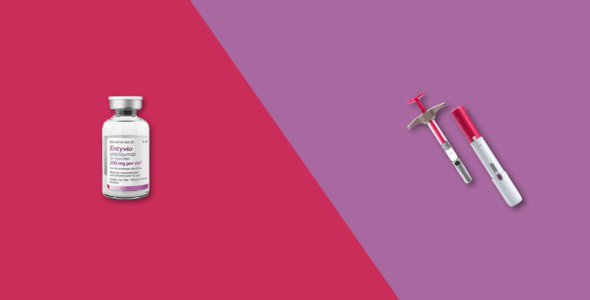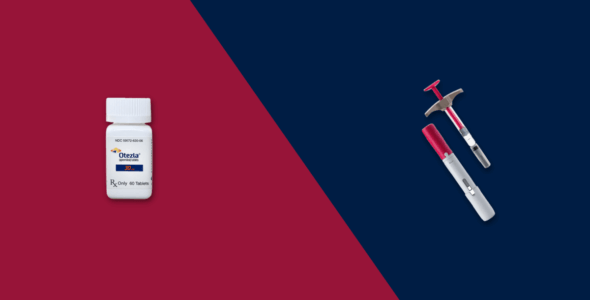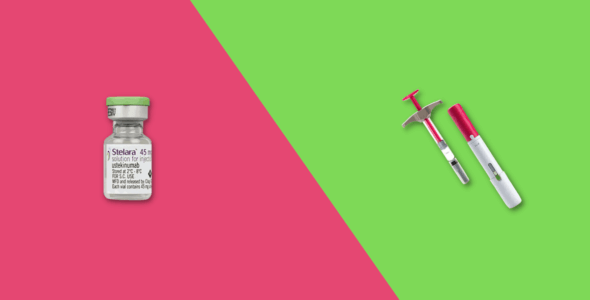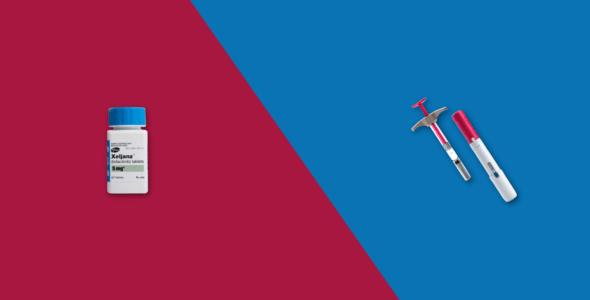Biologic drugs (also known as biotherapeutics or biopharmaceuticals) are produced by a biological process rather than a chemical process. It is a highly complex process using living organisms, such as modified plant and animal cells. Biologic therapies aim to stimulate or restore the body’s immune system to fight infection and disease. Remicade and Humira are biologic drugs that are used in adults and children to treat inflammatory autoimmune diseases. There are many biologic drug options available to treat these diseases and many factors are taken into consideration when choosing the right biologic such as the type and severity of your disease and your treatment history. Remicade and Humira are two options we will consider today, read on to find out more.
What is Remicade?
Remicade is a medication known as a tumor necrosis factor (TNF) inhibitor(or anti-TNF). The active ingredient in Remicade is called infliximab and the drug is given by an intravenous infusion. How often you need infusions will depend on your condition.
Remicade is FDA (U.S. Food and Drug Administration) approved to treat inflammatory autoimmune diseases such as
The medication can also be used to treat inflammatory bowel diseases (IBD) such as
What is Humira?
Humira is an immunosuppressant medication classed as a tumor necrosis factor (TNF) inhibitor containing the active ingredient adalimumab.
Humira is approved by the FDA to treat the following inflammatory autoimmune diseases:
- Rheumatoid arthritis in adults
- Active psoriatic arthritis in adults
- Ankylosing spondylitis in adults
- Moderate to severe plaque psoriasis in patients who are candidates for systemic therapy or phototherapy in adults
- Juvenile idiopathic arthritis in children aged 2 years and older
Humira is also approved to treat similar non-autoimmune inflammatory diseases:
- Crohn’s Disease in adults and children aged 6 years and older
- Ulcerative colitis in adults in adults and children aged two years and older
- Hidradenitis suppurativa in adults and children aged 12 years and older
How do Remicade and Humira work?
Both drugs work as monoclonal antibodies and, more specifically as TNF blockers, to treat inflammation. TNF alpha (tumor necrosis factor-alpha) is one of a number of different antibodies produced by white blood cells and other parts of the immune system.
Once Remicade or Humira is injected into your body, its active ingredient helps reduce inflammation. Your immune system releases a protein in your body to trigger inflammation called TNF-alpha (tumor necrosis factor-alpha). The active ingredient attaches to TNF-alpha and stops it from working. This limits the amount of inflammation your immune system can cause.
By reducing inflammation, Remicade and Humira can provide relief from the symptoms of inflammatory diseases. It can also limit the damage they cause and can stop flare-ups from happening.
How do you take Remicade and Humira?
You take Humira by subcutaneous injection (injecting it under your skin) using either a pre-filled syringe or an injectable pen. It is important to use a new needle each time to prevent the risk of infection. You may have injection site reactions such as redness, bruising, or irritation after administration that will settle down after a few hours. Humira can be given at home through an injection. You will be trained on how to self-administer the injection or it could be done with help from a family member or friend.
Remicade, on the other hand, is taken as an intravenous infusion (IV). This is normally carried out in a doctor’s office or in an infusion center that administers medications by IV. Remicade comes as a powder that a healthcare professional mixes with the provided liquid. Next, they add the Remicade solution to a bag of saline. You then receive the medication as an injection directly into your vein over a period of time.
What are the side effects of Remicade and Humira?
As Remicade and Humira belong to the same drug class their side effects are similar.
Common side effects include:
- Injection site reactions
- Abdominal pain
- Sinus infection
- Headache
- Joint pain
Serious side effects include:
- Suppression of the immune system
- Increased risk of cancer, particularly lymphoma
- New or worsening heart failure
- New or worsening psoriasis
- Allergic reactions
- Serious infections
Doctors often prescribe methotrexate or corticosteroids with Remicade and Humira increasing your risk for developing a serious infection. This is because all these drugs are immunosuppressants and reduce the ability of your body to fight infections.
In clinical trials, children with Crohn’s disease or ulcerative colitis had certain side effects more often than adults. Your Gastroenterology physician can give you more information.
What drugs interact with Remicade and Humira?
Remicade and Humira have drug interactions with some of the following drugs
Other medical conditions may affect your treatment with Remicade or Humira so you should always seek medical advice from the healthcare professional prescribing your drugs. The drug information provided is intended for reference only and should not be used as a substitute for medical advice.
Are there any biosimilars of Remicade?
Yes. The FDA has approved four biosimilar versions of Remicade, which are Avsola, Inflectra, Ixifi, and Renflexis. No biosimilars for Humira have been launched yet.
Which other biologics drugs are available?
Your healthcare provider has many biologic drugs available to prescribe such as Simponi (golimumab), Cimzia (certolizumab pegol), Enbrel (etanercept), Orencia (abatacept), Kineret (anakinra), and Entyvio (vedolizumab)
Are Remicade and Humira safe to take during pregnancy or while breastfeeding?
The risks and benefits need to be weighed up before prescribing Remicade or Humira to pregnant or breastfeeding mothers. There is currently no research on pregnant and breastfeeding women.







